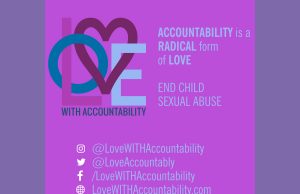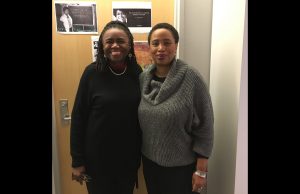Personal is Political: Open Letter to Dylan Farrow
TRIGGER WARNING: This letter includes descriptions of sexual abuse.
Dear Dylan,
My father worships Woody Allen. Until I read your letter yesterday, I never understood exactly why. You see, when Allen assaulted you in 1992, my own father had just barely escaped criminal charges for molesting me. A child psychologist decided that the evidence of abuse was conclusive, but my father intimidated her with death threats and claimed that she had implanted false memories into my mind. He also hired an expensive attorney, who made sure that he received disability benefits instead of doing jail time. I was too scared to say anything in front of a judge (he asked about the abuse several times, and dismissed my claims when I remained silent), and my mother chose not to press criminal charges because my father had already attempted to kill her, and she feared that he would do so again. So my abuser- like Allen- avoided punishment for the assault. However, the judge ordered that visitation with his children had to be supervised. Sounds familiar, doesn’t it?
Like you, Dylan, I underwent an examination of my hymen, and the memory has haunted me for years. I recall the quick movements of silent doctors and the cold sharpness of the instruments. I remember my confusion, followed by the sudden realization of what was going to happen, and my legs thrashing in a futile attempt to fight off the masked doctor. Hands pinned my shoulders to the table, and a nurse attempted to block my view. Pity filled the room, and yet no one comforted me. Barely four years old, I re-dressed myself while sobbing inconsolably. Even after being violated by my father and penetrated by a large, pointy, and painful speculum, I was deemed “intact.” I find that ironic.
Many child survivors of rape are treated with disrespect, suspicion, and even disgust. And for this reason, I am not surprised that our society collectively celebrates Woody Allen. But your bravery has sparked a national debate, and I would like to discuss the connections between sexual violence against children, cultural idols like Woody Allen, and pedophiles like my father. Please accept my heartfelt gratitude, for your letter reminded me that all survivors gain strength when one of us challenges an abuser and highlights the power of institutions that support them. I hope that my story is not too triggering for you to read. I sensed that your public letter was purposeful in that it did not expose many details of the assault, and I contest those who say that your words do not provide enough proof of what he did.
Why should you be obligated to reveal every detail (some of your worst memories, to be sure) in order to gain credibility with the public? Why do strangers and bystanders wish to revel in the minutiae, to replay the scenes in their mind, and- still– to toy with the idea that you are a liar, delusional, or untrustworthy? As survivors, everything we describe poses a potential harm to us: a harm that we cannot yet identify, but one that we know exists. Maybe you can’t share your whole story, but I can, and I offer it in solidarity.
***
My dad was a physically repulsive man. All of his teeth had fallen out by his mid-thirties, and alcoholism and a poor diet left his body flabby and stringy, with a distended abdomen. He categorically rejected showers, preferring to wipe himself with wet rags. He never washed his clothes, but rather dampened them in the bathtub and hung them to dry on the towel rod. He was covered in greasy oil, he stank of body odor and stale nicotine, and his nails were ridged and yellow with fungus. He passed most of his time lying down, watching old movies on a tiny screen, thrown hopelessly atop a futon on the floor and tangled permanently in a heap of wool blankets. He drifted in and out of sleep during the day, awaiting nightfall. He phoned his mother often, begging for cigarette and food money. My siblings and I were prohibited by court order to be alone with him, but our mother would drop us off for extended periods—days on end, and sometimes a week at a time.
I became his sexual plaything at a very young age, and he first put his mouth on my genitals when I was only two years old. By the time I was three, he had taught me where to find my clitoris, and he regularly introduced his coarse fingers into my vagina and anus while he flicked me with his tongue. He waited until I was drifting off to sleep, and then he would approach me. Massaging my feet and legs gently, he pried apart my thighs despite my weak attempts to keep them closed. He would stroke my vulva with his thumbs and then tweak my nipples, moistening my vagina with his mouth until I pushed my hips into his face, submitting to the pleasure and anticipating the pain. We both knew I was not asleep when he kneaded my g-spot, holding two or three fingers inside of my tiny body. He loved to point the fingertips upward, ignoring my gasps of pain, and tap my stomach gently with the other hand, just below my bellybutton. He was, in a sick way, giving himself a high-five– presumably delighted to reign over such a vast expanse of his daughter’s body. Seeking greater thrills, he placed his pulsating head inside the lips of my vulva. He pushed gently, restraining himself, until he exploded with excitement.
Desperate for a mental escape, I used to imagine a place where no one could touch me. I envisioned a magical land that resembled the house that carried Dorothy from Kansas into the land of Oz: a tornado raged outside, spinning the home and scattering debris, but Dorothy was inside, alone with Toto, and she was safe.
My mother continued to abandon me at his house. After the custody battle was over, she ignored the blatant signs of abuse– depression, yeast infections, soiled underwear, and overtly sexualized behavior. He would rub his dripping penis in circles on my lower back and in the crack of my butt, slowly masturbating himself to sleep in front of the loud television. I lay silently, six inches from the screen, my eyes open wide in disbelief. After he passed out in a drug-induced stupor, I would peel my sticky, naked body from the futon and seek refuge in the cramped bathroom, wedging my thin four-year-old frame between the iron radiator, the moldy tub, and the fetid, perspiring toilet. I felt safe there, and I still lock myself in the bathroom when flashbacks torment me. In the morning he would approach me: penis hanging out of his open bathrobe, eyes begging both for forgiveness and further titillation. He would slather lotion all over my body, citing dry skin and pleading to know why I trembled, squirmed, and fought desperately to escape his clutches. My resistance enraged him, and he dug his fingers into my small limbs until they bruised.
With sad, guilty eyes, he would beg me to force sugary cereal into my churning stomach. I wanted nothing to do with his food, as I only wanted to die. For decades after, I would remain alone inside of my head, turning to the thought of death as my only source of comfort. When my mother would retrieve me from my father’s house, she offered harsh accusations instead of comfort. She admonished me for the slightest infraction, labeling me “disgusting” and a “liar”. She would insist throughout my youth that there was something wrong with me, and she vocalized that I should just kill myself. I tried, several times.
Having fantasized about running away since age 5 (and once, at age 7, making an unsuccessful attempt to stow away in a UPS truck), I fled from my parents at the age of 14. When I outstayed my welcome with friends and tried to return home, my mom refused to house me. I lived in a house of runaways- most of them alcoholics and drug abusers- and then shuffled between various locations with friends and boyfriends. I suffered from anorexia and post-traumatic stress disorder, and engaged in a series of emotionally and physically abusive relationships.
Incredibly, somehow, I also graduated high school, did well in the local university, and became a PhD student in a prestigious program. It will be a miracle if I can finish a dissertation with all these memories weighing me down, for I have been terrorized by flashback-nightmares for my whole life. As a teenager, one dream could send me into such a bad depression that I would sleep for more than 24 hours straight. Sometimes I would keep myself awake for days at a time in hopes of preventing the next night terror. In some ways, I have lost most of my youth. I never felt innocent or carefree like my peers, and I failed many classes because I was having flashbacks about a faceless old man penetrating me.
I confronted my father about the abuse when I was 17, and his mother told me that I am no longer part of the family. However, my siblings support me unconditionally, and they have witnessed the degree of pain this has caused me. I’ve suffered panic attacks for my whole life, and although all of these symptoms are decreasing with trauma treatment, sexual intimacy is extremely difficult. Recently I touched my boyfriend’s penis, and I was suddenly catapulted backward in time to re-live yet another memory: At the age of 5, I gradually woke from sleep while my father rubbed himself with my small hand. Fear overcame me, and I elbowed and kicked my partner away, resisting the urge to cry and scream. Needless to say, it was difficult to explain.
***
Until recent decades, psychiatrists viewed father-daughter incest as relatively benign. Furthermore, they claimed that it generally resulted from a girl’s Oedipal instincts rather than her father’s pedophilia. In 1950, when Woody Allen was coming of age, a prominent U.S. psychiatrist wrote the following:
We believe that the actual consummation of the incestuous relation, which constitutes a secondary process derived from a former grave state of melancholy, diminishes the subject’s chance of psychosis and allows better adjustment to the external world (emphasis added).
Leading professionals proposed that incest was mostly harmless, and that it could even be psychologically beneficial to both parties. They also claimed that abused children demonstrated abnormal sexual desire, and usually enjoyed incestuous encounters with adults. While the international community of mental health professionals has certainly altered their views on the dangers of sexual abuse, I am not so sure that this epistemological shift has transferred to our society at large.
According to the National Center for Victims of Crime, 1 in 5 girls and 1 in 20 boys is a victim of child sexual assault, and more than 90% of juvenile victims know their perpetrator in some way. Sexual abuse is also one of the most under-reported crimes, with an estimated 60% of cases left unreported. Judging by the popular celebration of Woody Allen, these national statistics are of little importance to those who play key roles in promoting popular culture.
I can now comprehend why my father idolized Woody Allen. He embodies a father figure who seeks pleasure in girl’s bodies however he saw fit. The fact that Allen sexually assaulted you, married Soon-Yi, and was allowed to adopt two more girls sends a message of empowerment to pedophiles like my father. My abuser, notably, used to rail incessantly against “angry feminists”. With a half-hearted laugh, he would also proclaim: “I’m just a dirty old man, honey, you gotta understand.” He sent me a letter last year, with a picture of breasts that I had supposedly drawn (as a child). He wrote “Daddy’s wife” and “Horny girl”.
As you know, Dylan, the ongoing celebration of Woody Allen does not just mean that high-profile individuals are turning their cheek, silencing and invalidating you in the process. It also means that pedophiles like my father enjoy tacit permission to rape their daughters, stepdaughters, and even their sons. It is important to recognize male victims: my father’s own dad abused him, and many abusers are survivors themselves, although abused boys are much more likely to become pedophiles than girls. It appears that patriarchy is harmful to men as well as women, and that a lack of emotional support for abused men results in epidemic levels of pedophilia. This, in turn, is encouraged by media portrayal of young girls and women as sex objects, as well as political efforts to subordinate and repress women. Sexualized political repression is long-standing, and many prominent theorists (such as Saidiya Hartman, Bell Hooks, Andrea Smith, Audre Lorde, and Gloria Anzaldúa), have demonstrated that the ongoing historical legacies of exploitation, rape, and murder of women have shaped contemporary gender relations. The rampant sexual abuse of black, indigenous, and immigrant women has caused widespread social trauma in this nation, and efforts to challenge these atrocities have been met with the cultural politics of denial. This debate is not just about an intra-familial “cycle of abuse”. Rather, it is about the sexualized, racialized violence at the heart of nation building throughout the United States and much of the world.
With every public celebration of people like Allen, our society takes a step backward. It’s a step away from healing, and towards dark, closet-like attics. I was in one too, Dylan– but like you, I am healing. You inspire me, and I’m writing to thank you for your courage.
________________________________________________________
The writer of this essay prefers to remain anonymous.





13 Comments